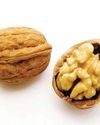
A healthy balance of gut microorganisms can improve your health by enhancing digestion; reducing symptoms of digestive disorders; relieving diarrhea; relieving constipation; fending off infections; reducing risk of skin disorders; and lowering the odds of obesity, high cholesterol, depression, anxiety, heart disease, diabetes, and possibly more.
The human gut contains about 1,500 species of probiotics. They can protect the structure of the digestive tract, stop pathogens from multiplying and causing illness, and produce enzymes to help break down food.
Each probiotic is part of a genus, a broad category such as Lactobacillus or Bifidobacterium, and each of these is further divided into species. These are some popular species of probiotics found in supplements:
This story is from the April 2020 edition of Better Nutrition.
Start your 7-day Magzter GOLD free trial to access thousands of curated premium stories, and 8,500+ magazines and newspapers.
Already a subscriber ? Sign In
This story is from the April 2020 edition of Better Nutrition.
Start your 7-day Magzter GOLD free trial to access thousands of curated premium stories, and 8,500+ magazines and newspapers.
Already a subscriber? Sign In

Strike A Healing Chord
Soothe your mind, body, and spirit with three simple sound therapy techniques for self-care.

Laura's Gourmet Granola
If you’re tired of granola that’s more candy than health food, chef and entrepreneur Laura Briscoe’s offerings are just what you’ve been looking for.

News Bites
Caffeine, Peanuts, CoQ10, and Iron Deficiency.

The Overlooked Keys to a Healthy Gallbladder
Keep your bile thin and free-flowing by focusing on supportive foods, supplements, and physical activity.

Go Nutty This Year
This über-healthy alternative to traditional lattes features homemadewalnut “mylk,” along with antioxidant-rich green tea and berries.

The Three Stages of Infection
What you need before, during and after an illness, and why you need different fixes for each stage.
Taming the Flames
How to beat back chronic inflammation and protect yourself from related disease.

Deconstructing the Flexitarian Diet
How being a part-time vegan can make you healthier.

Brain Regain
How one senior used a leptin-focused diet (high-fat, no carbs) to recover from a cognitive injury, reconnect with his family, and reclaim his health.

Healthy Aging— Head To Toe
Science-backed supplements to protect all your parts.